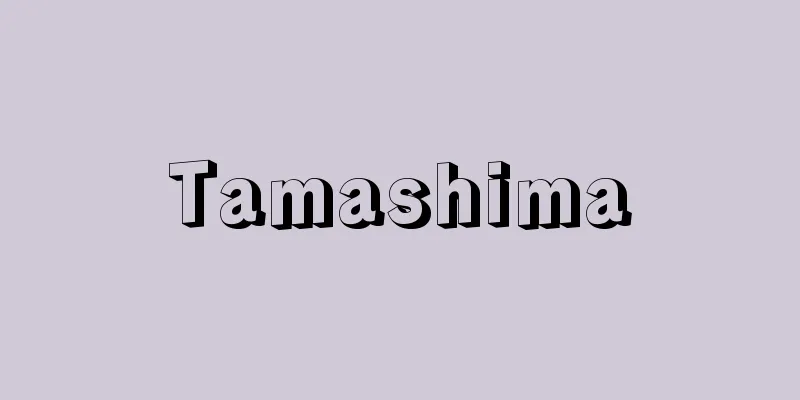Freedom - Right to freedom

|
This refers to the right to secure the freedom of each individual without intervention or interference from the state. It is one of the fundamental human rights, and is also known as the fundamental right of freedom. The desire for freedom is inherent in human nature from birth, and the first right that humans acquired in order to establish their own individual value was the right to freedom. Social rights and the right to vote were established on the premise of this right to freedom. [Masaaki Ikeda] HistoryLiberal rights are the most basic of fundamental human rights, and therefore have a long history. They have been passed down through the British Bill of Rights (1689), the American Declaration of Independence (1776), and the French Declaration of the Rights of Man and of the Citizen (1789), to modern constitutions, and currently, no country in the world has a constitution that does not provide for these freedom rights, although there are differences in the degree and quality of their protection. [Masaaki Ikeda] Freedoms Provided in the ConstitutionBecause freedom encompasses the entire scope of the development of the personality, it is by no means possible to enumerate all of the rights related to it in the Constitution. The freedoms stipulated in the Constitution are backed by historical origins, and each was specifically written down with the purpose of eliminating interference and infringement by state power, based on bitter experiences. Therefore, it is necessary to think that behind the individual freedoms explicitly stated in the Constitution, a broader range of freedoms is guaranteed. The freedoms enumerated in the constitution can generally be divided into two categories. The first category is "political freedoms," such as freedom of thought, speech, assembly and association, and personal freedom. These are the theoretical premises of democracy, and democratic politics cannot be conceived without the guarantee of these freedoms. The second category is "economic freedoms," such as freedom of contract, freedom of choice of occupation, and inviolability of property rights. These freedoms are the pillars that support capitalism. Therefore, in socialist countries, these freedoms are often significantly altered or even denied. In general, there is a big difference between the way freedoms are guaranteed in socialist and capitalist countries. In short, in the latter case, freedoms are guaranteed conceptually, while in the former case, specific means of guaranteeing them are stipulated, and at the same time, they are limited to workers, which is a distinctive feature. [Masaaki Ikeda] Liberal rights in the Japanese ConstitutionBoth the Meiji Constitution and the Constitution of Japan, the former constitutions, contained provisions regarding freedom of rights, but in the Meiji Constitution, these were merely rights granted by the Emperor as subjects, and their scope was narrow, and the means of guaranteeing them were subject to legal reservations (restrictions by law). Furthermore, these rights were restricted by emergency imperial decrees and independence orders, so in reality they were extremely inadequate. In contrast, the Constitution of Japan made the rights it guaranteed absolute, given by natural law, did not recognize reservations in law, and denied exceptions. Any state actions that infringed on these rights were to be legally protected by the courts, so the rights guaranteed were expanded and made thorough. The Constitution of Japan stipulates various freedoms, which can be broadly divided into spiritual freedom (rights), personal freedom, and economic freedom (rights) depending on what they guarantee. [Masaaki Ikeda] Mental freedomThis right guarantees the freedom of the individual's mind from state power, and stipulates freedom of thought and conscience (Article 19), freedom of religion (Article 20), freedom of assembly, association and expression (Article 21), and academic freedom (Article 23). As a result, unlike under the Meiji Constitution, people are no longer punished for their beliefs, they are free to believe in any religion and there is no interference with it, and people are free to worship and form religious associations. There is also freedom in academic research, presentation, and teaching. However, there are restrictions on the activities of heretical cults and those that disrupt public morals. The right to privacy is also protected in opposition to the other party's freedom of expression. [Masaaki Ikeda] Personal freedomThe freedom of an individual's body from everything, especially from state power, is the minimum requirement of a human being, and the Constitution provides numerous guarantees regarding this personal freedom. It guarantees the principle of personal freedom and the rights of suspects and criminal defendants, and sets out strict requirements to limit the abuse of state power. [Masaaki Ikeda] Financial freedomThe establishment of economic freedom is considered to be a necessary condition for the establishment of a modern society. The Constitution of Japan also guarantees the right to economic freedom, but at the same time, because unlimited freedom of a liberal economy leads to social corruption, it allows for restrictions on it from the standpoint of public welfare. Furthermore, the Constitution stipulates freedom of residence, relocation, choice of occupation, emigration, and renunciation of nationality (Article 22). However, the Quarantine Act provides for the isolation and detention of patients with specified infectious diseases, as well as a license system for certain occupations such as adult entertainment businesses and doctors. [Masaaki Ikeda] [References] | | |Freedom | |Source: Shogakukan Encyclopedia Nipponica About Encyclopedia Nipponica Information | Legend |
|
国家の介入、干渉を排除して各人の自由を確保する権利をさす。基本的人権の一つで、自由権的基本権ともいう。人間の自由に対する欲求は、生まれながらに人間性に内在するもので、人間が個人の価値を確立するために獲得した最初の権利が自由権であった。社会権や参政権は、この自由権を前提にして確立したものである。 [池田政章] 沿革自由権は基本的人権のなかでも、もっとも基本的なもので、それゆえ長い歴史をもっている。イギリスの権利章典(1689)、アメリカ合衆国の独立宣言(1776)、フランスの人権宣言(1789)を経て、現代憲法に及んでおり、現在世界各国において、程度の差、保障の質の違いはあるにしても、この自由権を規定していない憲法はない。 [池田政章] 憲法に規定された自由権自由は人格の発展の全領域を覆い尽くすものであるから、それに関する権利のすべてを、憲法の規定として列挙することはとうてい不可能である。憲法に規定された自由権は、歴史的な由来に裏づけられており、いずれも国家権力による干渉・侵害という苦い経験のなかから、それを排除する目的で、とくに明文化されたものである。したがって、憲法に明示された個別的な自由の背後には、なお広い範囲の自由が保障されていると考えることが必要である。 憲法が列挙する自由権は、普通、2種類に大別することができる。第一は、思想の自由、言論の自由、集会・結社の自由、人身の自由などの「政治的自由」で、これらは民主主義の理論的前提となるものであり、これらの自由の保障なくして、民主政治を考えることはできない。第二は、契約の自由、職業選択の自由、財産権の不可侵などの「経済的自由」であり、これらの自由は資本主義を支える柱ともいうべき性質をもっている。したがって、社会主義国家においては、これらの自由はかなり変容し、あるいは否定されていることも多い。一般に社会主義国家と資本主義国家における自由権の保障の仕方には大きな差異がみられる。要約すれば、後者の場合には自由権はいわば観念的に保障されているのに対し、前者にあっては、保障のための具体的手段が規定され、同時にそれが労働者に限定されていることが特徴的であるといえる。 [池田政章] 日本の憲法における自由権旧憲法である明治憲法、日本国憲法のいずれにも自由権に関する規定が設けられたが、明治憲法では天皇から与えられた、臣民としての権利にすぎず、その範囲も狭く、その保障の方法も法律の留保付き(法律により制限される)であった。そのうえ緊急勅令、独立命令などによって制限されたから、実質的にはきわめて不十分なものであった。 これに対して、日本国憲法は、その保障する権利を、自然法によって与えられた絶対的なものとし、法律の留保を認めず、例外を否定した。それを侵害する国家行為に対しては裁判所によって法的に保障されることになったから、保障する権利の拡大とともに徹底したものとなった。日本国憲法では各種の自由権が規定されているが、保障する対象によって精神的自由(権)、人身の自由、経済的自由(権)に大きく分けることができる。 [池田政章] 精神的自由国家権力からの個人の精神の解放を保障する権利で、思想および良心の自由(19条)、信教の自由(20条)、集会・結社および表現の自由(21条)、学問の自由(23条)が規定された。その結果、明治憲法下におけるように、思想のために罰せられることはなく、どのような宗教を信じても干渉されず、礼拝、宗教的結社の設立も自由になった。また、学問の研究・発表・教授も自由になった。ただし、淫祀(いんし)邪教のたぐいや風俗を破壊するような行為は制限されている。またプライバシーの権利が、相手方の表現の自由に対立して、保護されている。 [池田政章] 人身の自由個人の身体が、何ものからも、とくに国家権力から自由であることは、人間の最小限度の要求であって、憲法はこの人身の自由については、きわめて多くの保障を与えた。そこでは人身の自由の原則と、被疑者・刑事被告人の権利が保障され、厳格な要件を定めて国家権力の乱用を制限している。 [池田政章] 経済的自由近代社会確立のためには、経済的自由の確立が必須(ひっす)な条件とされる。日本国憲法も経済的自由権を保障したが、同時に自由主義経済の無制限な放任は社会の腐敗を招くので、公共の福祉の見地から、その制限を認めている。さらに、居住、移転、職業選択、外国移住、国籍離脱などの自由が規定されている(22条)。ただし、検疫法による、規定感染症患者の隔離・停留とか、風俗営業、医師などの特定の職業に対しては許可制度が設けられている。 [池田政章] [参照項目] | | | | |出典 小学館 日本大百科全書(ニッポニカ)日本大百科全書(ニッポニカ)について 情報 | 凡例 |
>>: Congratulations - Celebration
Recommend
Machado
Spanish poet. Rebelling against Modernismo, which ...
National Recovery Administration
…As part of the New Deal policy of the United Sta...
Republicanism
...The way things unfolded was quite different in...
Grechetto
…Italian Baroque painter, draughtsman and copperp...
saticon
...Compared to camera tubes, it has advantages su...
Truk [Islands] - Truk
A group of islands in the central Caroline Islands...
Hess, GH (English spelling) HessGH
…Thermochemistry and electrochemistry were the fi...
Nampa - Nampa
〘noun〙① A party whose opinions or principles are w...
Coptic Music - Coptic Music
This music accompanies various mass liturgies in C...
Tushratta
...The background to the growth of their power is...
"The Madonna of Alpi" - Alpi no Seibo
...A technical artist who combined the merits of ...
Cyclitis
… [Uveal Disorders] The uvea is a tissue that is ...
Intestinal acariasis
…Dermatitis includes vanillism, copra itch, baker...
Advisory Bureau (English: Zi-yi-ju; Tzü-i-chü)
A transitional local assembly established in each ...
Rudolf Karl Bultmann
German Protestant New Testament scholar. Born Aug...









